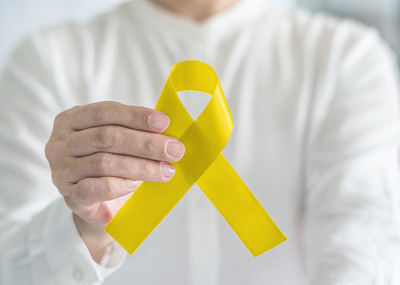With suicide rates rising across the country, understanding the factors that contribute to it is an essential part of reversing the trend. One such factor, according to the CDC? Substance misuse. Here’s a closer look at the data, along with why substance abuse treatment is a pivotal part of suicide prevention.

Suicide and Substance Abuse
The 10th leading cause of death in the US, suicide is among a small group of three leading causes of death that are increasing. The association between rising suicide rates and substance abuse is hardly surprising given the known link between the two.
Says the Psychiatric Times, “Although it is difficult to compare the relative impact among different mental health problems with the risk of suicide, alcohol and drug use disorders have been found to be strongly related to suicide risk. Individuals with a substance use disorder (ie, either a diagnosis of abuse or dependence on alcohol or drugs) are almost six times more likely to report a lifetime suicide attempt than those without a substance use disorder.”
Beyond Mental Health Issues
Researchers have determined that more than half of people who die from suicide didn’t have diagnosed mental health conditions at the times of their death. The takeaway? In addition to the fact that many mental health conditions are going overlooked and undiagnosed, other factors also come into play due to the complex and multi-factored nature of suicide. In addition to substance misuse, relationship problems; physical health problems; and job, money, legal and housing stresses make the list of contributing factors. As such, explains the CDC, “Although suicide prevention efforts largely focus on identifying and providing treatment for people with mental health conditions, there are many additional opportunities for prevention.”
An essential initial step in suicide prevention is to know the warning signs, including:
- Increased feelings of isolation, anxiety, anger, and hopelessness
- Talking about wanting to die
- Looking for a way to access lethal means
- Actively making plans for suicide
- Increased substance use.

Targeted substance abuse treatment can support recovery while playing a critical preventative measure against suicide.
Specifically, research suggests that people who engage in certain types of substance use and abuse are most vulnerable to suicidal behaviors, including those who use opiates, cocaine, and sedatives.
Furthermore, people who abuse alcohol, those with a “greater severity of recent drinking” are also more likely to attempt suicide and to die from it. “Co-occurring alcohol and drug use disorders may be particularly strong indicators of increased risk of suicide. Thus, the severity of substance use disorders (i.e., a greater number of substances or misuse of more than one substance) may predict a greater likelihood of suicide,” continues Psychiatric Times.
The Importance of Identification
It follows that a major preventative step against suicide is identifying people with substance use disorders to ensure that they receive the treatment they need. It’s also critical to acknowledge that all substance abuse treatment programs aren’t created equal. Choosing one with expertise in targeting treatment to the individual while addressing any co-occurring conditions not only optimizes the chance of recovery but also contributes to more robust relapse prevention. Contact us today to learn more about how leading St. Louis drug rehab center Harris House can help you or a loved one with a substance abuse problem.







